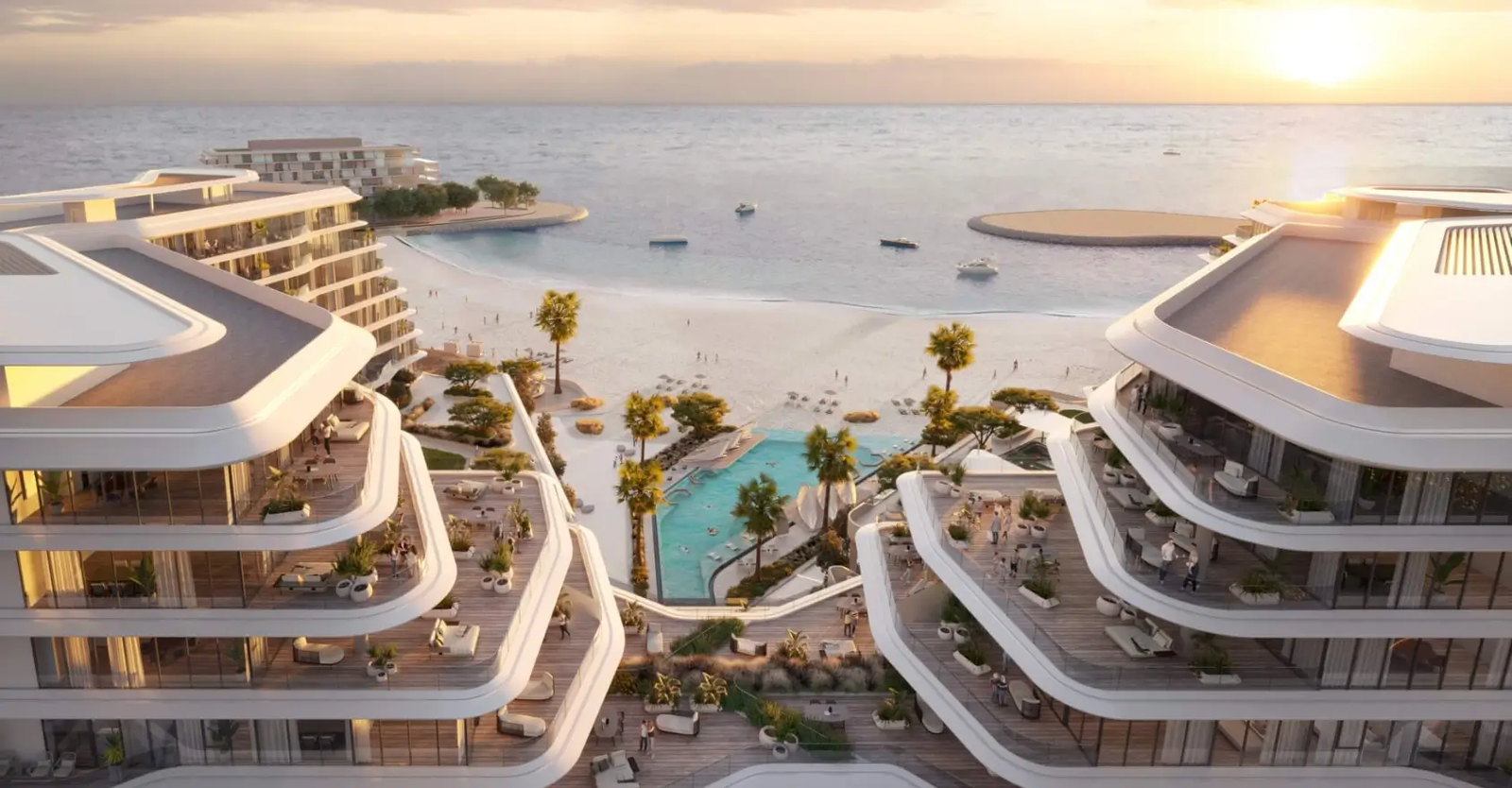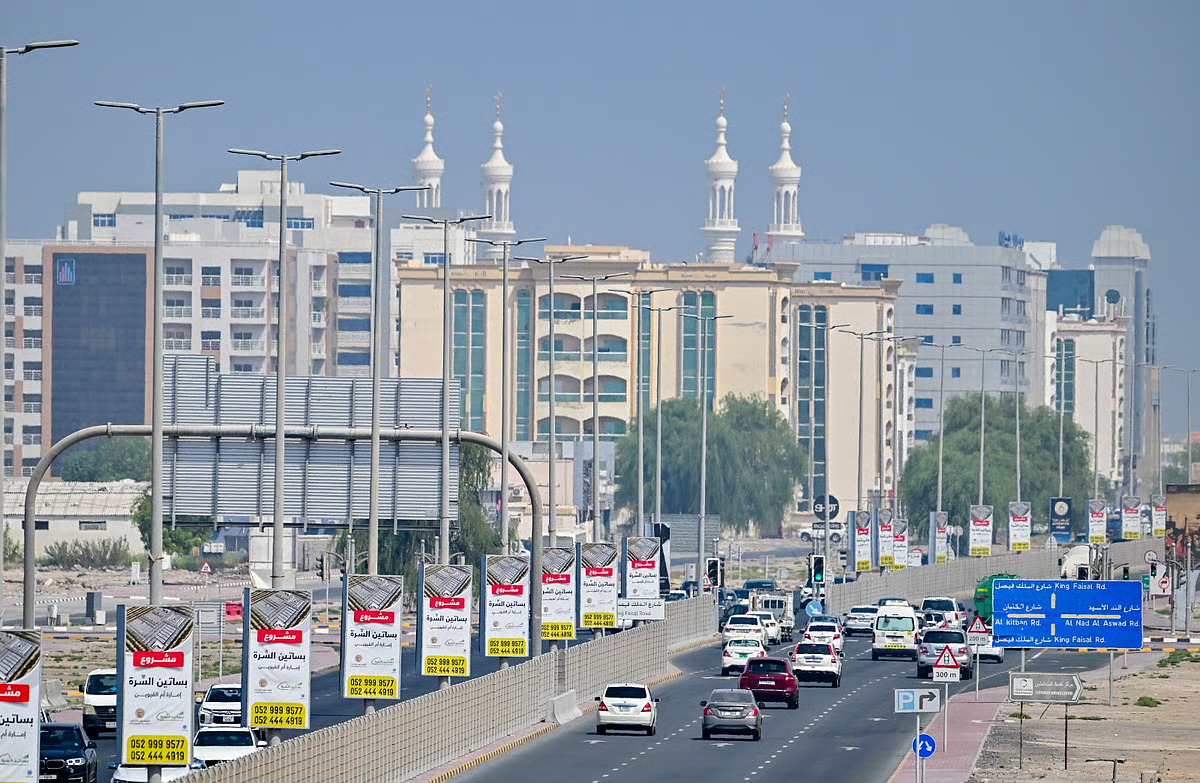Now Reading: Ras Al Khaimah Real Estate: 6 Key Tax Rules Near Free Zones Explained in 2025
-
01
Ras Al Khaimah Real Estate: 6 Key Tax Rules Near Free Zones Explained in 2025
Ras Al Khaimah Real Estate: 6 Key Tax Rules Near Free Zones Explained in 2025

Table of Contents
Ras Al Khaimah’s (RAK) real estate market, valued at AED 44.5B in 2024 with 34% year-on-year growth, is an emerging hub for investors, driven by affordability (30–40% cheaper than Dubai’s AED 2.5M median), high rental yields (7–10%), and tax-efficient policies near free zones like Ras Al Khaimah Economic Zone (RAKEZ), RAK Maritime City, and RAK Digital Assets Oasis (RAK DAO).
Six key tax rules—zero corporate tax for Qualifying Free Zone Persons (QFZPs), zero personal income tax, zero capital gains tax, zero inheritance tax, VAT exemptions on residential properties, and low transfer fees enhance profitability in freehold areas like Al Marjan Island, Mina Al Arab, Al Hamra Village, and RAK City. These rules support residential (apartments AED 400K–1.5M, villas AED 1M–3.5M) and commercial developments, offering 7–10% ROI and 10–15% appreciation by 2028.
Backed by infrastructure like Al Marjan Island expansion (AED 10B) and tourism growth (1.2M visitors in 2024), RAK attracted AED 11.2B in Q1 2025 transactions with 92% absorption. This guide details each tax rule, eligibility, and impact on real estate near RAK’s free zones, supported by 2024–2025 data.
1. Zero Corporate Tax for Qualifying Free Zone Persons (QFZPs)
- Ras Al Khaimah Details: Effective since 2023, QFZPs in RAKEZ and RAK Maritime City enjoy a 0% corporate tax rate on profits from real estate activities, including commercial developments (e.g., offices AED 500K–2M, warehouses AED 1M–3M). Non-QFZPs face a 9% corporate tax on profits above AED 375K. RAK DAO offers similar exemptions for digital asset-related properties.
- Eligibility: Developers must register with RAKEZ, RAK Maritime City, or RAK DAO authorities, conduct qualifying activities (e.g., property development, leasing), maintain economic substance (e.g., local staffing, assets), and avoid mainland transactions unless strategic. Requires Federal Tax Authority (FTA) compliance and audited financials.
- Impact on Real Estate: Saves 9% tax on profits (e.g., AED 90K on AED 1M profit), boosting returns for commercial projects near RAKEZ (8–10% ROI). In 2024, 20% of RAK’s commercial transactions leveraged this benefit, driving demand for warehouses near RAK Maritime City. Encourages mid-sized developers to structure through free zones, enhancing cross-emirate competitiveness.
2. Zero Personal Income Tax
- Details: No personal income tax is levied on rental income or profits from real estate investments held by individuals, allowing 100% retention of earnings. Applies to residential properties (e.g., Al Marjan Island apartments, AED 900K–1.5M, rentals AED 50K–100K/year) and commercial spaces (e.g., RAK City offices, AED 400K–1M, rentals AED 30K–80K/year).
- Eligibility: Available to individual investors, regardless of residency. No income reporting is required for personal earnings. Corporate entities face 9% tax unless QFZPs.
- Impact on Real Estate: Maximizes cash flow, yielding 7–10% ROI (e.g., AED 70K/year on a AED 1M Mina Al Arab apartment). In 2024, 65% of RAK’s transactions were rental-focused, attracting South Asian (20%) and GCC (25%) investors for buy-to-let projects like Al Hamra Village. Drives demand for off-plan developments near RAKEZ (e.g., Marjan Island projects, handover Q3 2026).
3. Zero Capital Gains Tax
- Details: No capital gains tax is imposed on profits from selling properties, whether short-term or long-term, in freehold zones like Al Marjan Island (apartments AED 900K–1.5M, 10–15% appreciation by 2028) and Mina Al Arab (villas AED 1M–3.5M, 12–15% appreciation).
- Eligibility: Available to individual investors and QFZPs in freehold zones. Non-QFZPs may face 9% corporate tax on gains unless structured via RAKEZ or RAK DAO. Sales must be registered with RAK Real Estate Authority (RAK REA) for compliance.
- Impact on Real Estate: Retaining full gains (e.g., AED 300K on a AED 1.5M apartment sold after 5 years) enhances profitability. Drove 35% of 2024 off-plan sales (e.g., Wynn Al Marjan Island residences, AED 1.5M), appealing to European (15%) investors. Supports high-growth projects near free zones, boosting investor confidence.
4. Zero Inheritance Tax
- Details: Properties transferred via inheritance or bequeathment are exempt from inheritance tax, preserving estate value. Applies to Al Hamra Village villas (AED 1M–3.5M) and RAK City apartments (AED 400K–800K).
- Eligibility: Beneficiaries must provide a death certificate, will, or court-issued probate document, translated into Arabic and legalized. Transfers must be registered with RAK REA within 6 months. No monetary consideration is allowed.
- Impact on Real Estate: Saves AED 20K–70K in potential taxes (based on 2–4% transfer fee equivalent), supporting wealth preservation. In 2024, 8% of RAK’s transactions involved inheritance, driving demand among GCC buyers (25% Saudi/Qatari) for family-oriented investments in Mina Al Arab. Enhances appeal for long-term holdings near RAKEZ.
5. VAT Exemptions on Residential Properties
- Details: Residential property sales and leases in freehold zones are VAT-exempt, unlike commercial properties (5% VAT). New residential builds incur a one-time 5% VAT on construction costs, recoverable if leased. Applies to projects like Al Marjan Island apartments (AED 900K–1.5M) and Mina Al Arab villas (AED 1M–3.5M).
- Eligibility: Applies to residential properties in freehold zones (e.g., Al Hamra Village, RAK City). Developers and investors must register with RAK REA for VAT recovery on leased properties. Commercial properties near RAKEZ may qualify for zero-rated VAT.
- Impact on Real Estate: Saves 5% on residential sales (e.g., AED 50K on a AED 1M apartment), enabling competitive pricing. In 2024, 70% of RAK’s residential transactions were VAT-exempt, driving demand for off-plan projects like RAK Central (AED 400K–800K). Boosts affordability near free zones, increasing sales volume by 25%.
6. Low Transfer Fees
- Details: RAK charges a 2–4% transfer fee on property sales (split equally between buyer and seller), lower than Dubai’s 4%. Fees are 2% for off-plan properties and 4% for ready properties, with no expo-based discounts. Applies to Al Marjan Island (apartments AED 900K–1.5M) and RAK City (apartments AED 400K–800K).
- Eligibility: Available to all investors in freehold zones. Requires RAK REA registration, No Objection Certificate (NOC), and Ejari RAK registration for rentals. Additional fees include agent commissions (2–5%) and registration fees (up to AED 5K).
- Impact on Real Estate: Reduces transaction costs by AED 8K–40K (e.g., AED 20K on a AED 1M apartment), improving net returns. In 2024, low fees contributed to a 34% transaction surge, particularly in Al Marjan Island (92% occupancy). Encourages developers and investors to focus on off-plan projects near RAKEZ, like Wynn Al Marjan Island.
Market Trends and Outlook for 2025
- Yields and Appreciation: Freehold zones near RAKEZ, RAK Maritime City, and RAK DAO offer 7–10% ROI (apartments 8–10%, villas 7–9%) and 10–15% appreciation by 2028, driven by AED 11.2B in Q1 2025 transactions and 15% rental growth. Off-plan projects (e.g., RAK Central, AED 400K) dominate with 40% of sales.
- Tax Efficiency: Zero corporate tax (QFZPs), personal income tax, capital gains tax, inheritance tax, and VAT exemptions maximize returns. Low transfer fees (2–4%) reduce costs. Non-QFZPs face 9% corporate tax, encouraging free zone structuring.
- Infrastructure Impact: Al Marjan Island expansion (AED 10B) and RAK Vision 2030 enhance connectivity (45-minute drive to Dubai), boosting values by 10–15%. Tourism (1.2M visitors in 2024) and projects like Wynn Resort drive demand for vacation rentals.
- Investor Drivers: Affordability (median AED 900K), 100% foreign ownership, and investor visas (AED 750K+ for residency) fuel 70% of demand. Off-plan sales (40% in 2024) attract GCC (25%), South Asian (20%), and European (15%) investors.
- Risks: Oversupply (5,000 units by 2026) and off-plan delays pose a 10% correction risk in H2 2025. Mitigated by 92% absorption, RAK REA oversight, and escrow accounts (e.g., Decree No. 12/2023). AML compliance (KYC) adds costs of AED 2K–5K per transaction.
- Regulatory Framework: Decree No. 12/2023 and Law No. 11/2021 ensure transparency via RAK REA and Real Estate Register. Freehold zones allow 100% ownership and inheritance rights. Transfer fees (2–4%) and Ejari RAK registration streamline transactions.
Investment Strategy
- Diversification: Invest in Al Marjan Island (apartments AED 900K–1.5M) for luxury rentals, Mina Al Arab (villas AED 1M–3.5M) for high-net-worth buyers, RAK City (apartments AED 400K–800K) for affordable rentals, and RAKEZ (offices AED 500K–2M) for commercial returns.
- Entry Points: Off-plan projects (e.g., Wynn Al Marjan Island, AED 1.5M) offer 10–15% gains by 2026–2028 with flexible payment plans (30% on handover). Ready properties (e.g., Al Hamra Village villas, AED 1M–3.5M) suit immediate income seekers (AED 50K–150K/year).
- Tax Optimization: Structure commercial projects as QFZPs in RAKEZ or RAK DAO to avoid 9% corporate tax. Leverage VAT exemptions for residential developments and low transfer fees for cost efficiency. Consult advisors like HLB HAMT for FTA compliance.
- Process: Verify freehold status and tax exemptions via RAK REA or free zone authorities. Pay 2–4% transfer fees and secure NOC. Use RAK REA-registered agents and platforms like Bayut or dubizzle. Required documents: passport copy, proof of funds, no UAE visa needed. Documents must be translated into Arabic and legalized.
Conclusion
In 2025, Ras Al Khaimah’s freehold zones near RAKEZ, RAK Maritime City, and RAK DAO benefit from six key tax rules: zero corporate tax for QFZPs, zero personal income tax, zero capital gains tax, zero inheritance tax, VAT exemptions on residential properties, and low transfer fees. These rules enhance profitability for properties (AED 400K–3.5M), offering 7–10% ROI and 10–15% appreciation by 2028.
Supported by AED 44.5B in 2024 transactions, infrastructure like Al Marjan Island expansion, and tourism growth, RAK attracts diverse investors. Despite a 10% correction risk, 92% absorption and RAK REA oversight ensure stability.Ras Al Khaimah
read more: Umm Al Quwain Real Estate: 5 Tax Benefits for Developers in 2025






















